BATH, June 13, 2023 — A third Steuben County town voted Monday for a one-year moratorium on waste project expansions after at least a dozen impassioned voices at a town meeting made clear their vehement opposition to new imports of sewage sludge to be spread on local farmland.
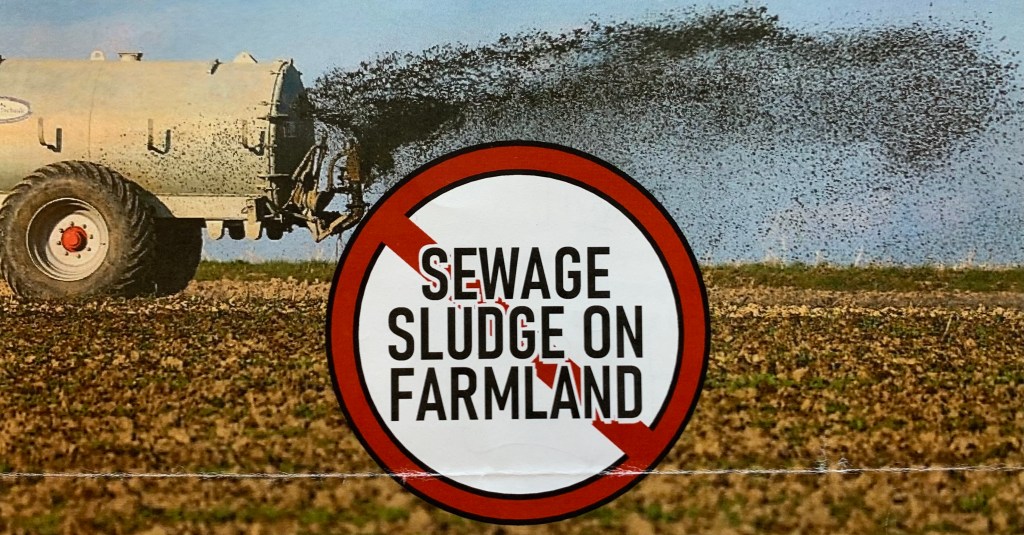
Reluctant at first, the Bath Town Council voted 5-0 to enact the moratorium, which is identical to measures passed in recent weeks by the neighboring towns of Thurston and Cameron.
When one council member appeared to waver, an unidentified member of the audience erupted:
“You don’t care about us who have to live out there on that hill and have contaminated wells and contaminated land. You don’t give a damn. You don’t belong there (on the town council).”
The outburst triggered clapping, whistling and various shouts of support:
“Don’t be a coward….Take a stand….We can smell the human sludge…You are here to protect us.”

Last summer, a subsidiary of Vermont-based Casella Waste Systems Inc. bought or leased 2,789 acres from Leo Dickson & Sons Inc. in the Bonny Hill area that extends across all three towns.
For several months, Casella officials did not tell local officials about the transactions or their plans to take over the sewage sludge spreading operation the Dickson family has run for several decades.
The Dicksons have a state permit to accept sewage sludge from 28 sewage treatment plants in the Finger Lakes, the Southern Tier and northern Pennsylvania.

Casella officials have asked the state Department of Environmental Conservation to transfer the Dickson permit to their Casella Organics unit. They are also seeking DEC’s approval to add a new source of sludge from Long Island. The Bay Park sewage plant in Nassau County produces roughly as much sludge as the 28 smaller plants combined.

Michael Volino, the supervisor of the Town of Thurston, said that adding Bay Park to the sludge spreading permit would violate the language of his town’s moratorium, which is identical to those enacted by Cameron and Bath.
Volino said DEC officials told him in April they were poised the grant the permit transfer and the addition of the Bay Park sludge as a “minor modification” to the permit. The agency has done neither. DEC officials have not responded to multiple requests from Volino and others to attend a public meeting in Thurston to share their regulatory policies and intentions.
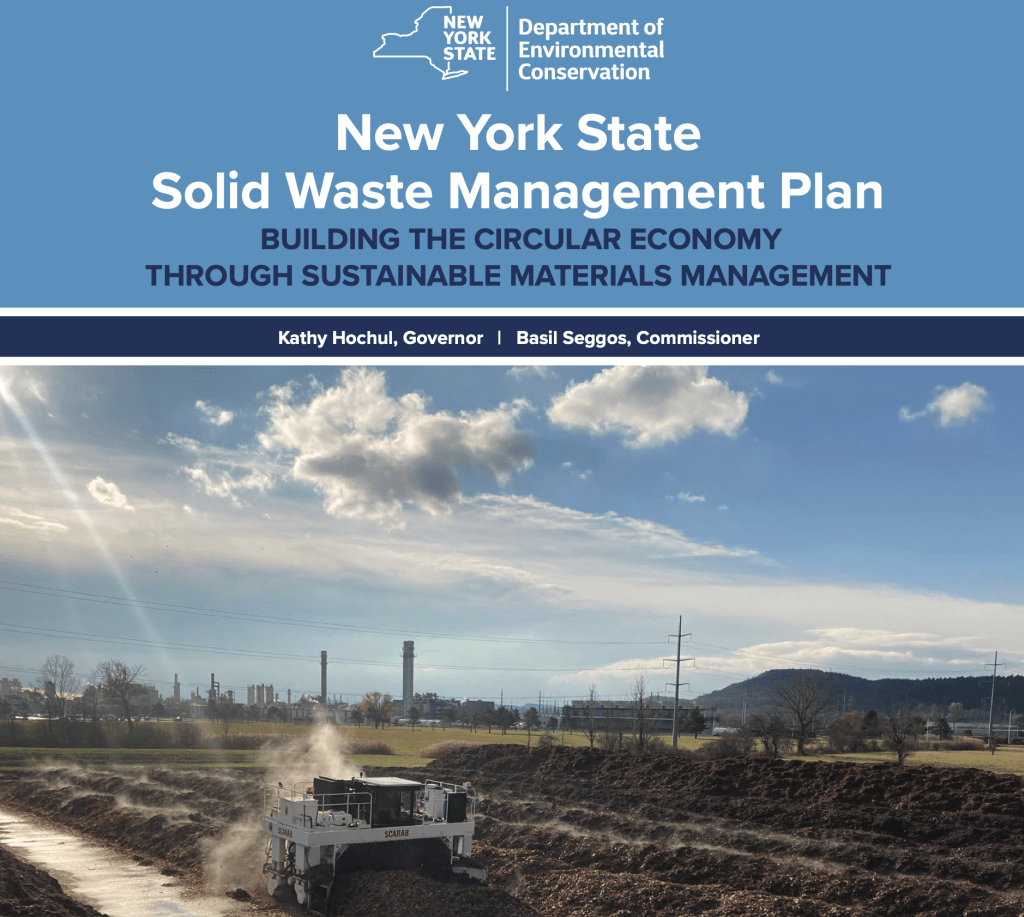
The DEC’s draft 2023 New York Solid Waste Management Plan proposes major increases in sewage sludge spreading on farm fields as a crop fertilizer.
In contrast, the state of Maine enacted a law last year after several farms that spread the sludge were found to be highly contaminated with PFAS ‘forever chemicals.’ Other states, including Michigan, have shut down PFAS-contaminated farms and destroyed their contaminated cattle.
While the Sierra Club has called on New York to follow Maine’s example and ban sewage sludge spreading statewide, the plan promoted by the administration of Gov. Kathy Hochul treats field-spread sewage sludge as “recycled” waste.
That use of that terminology is crucial to the state’s plan to “recycle” 85 percent of its entire waste stream by 2050, according to the draft plan.
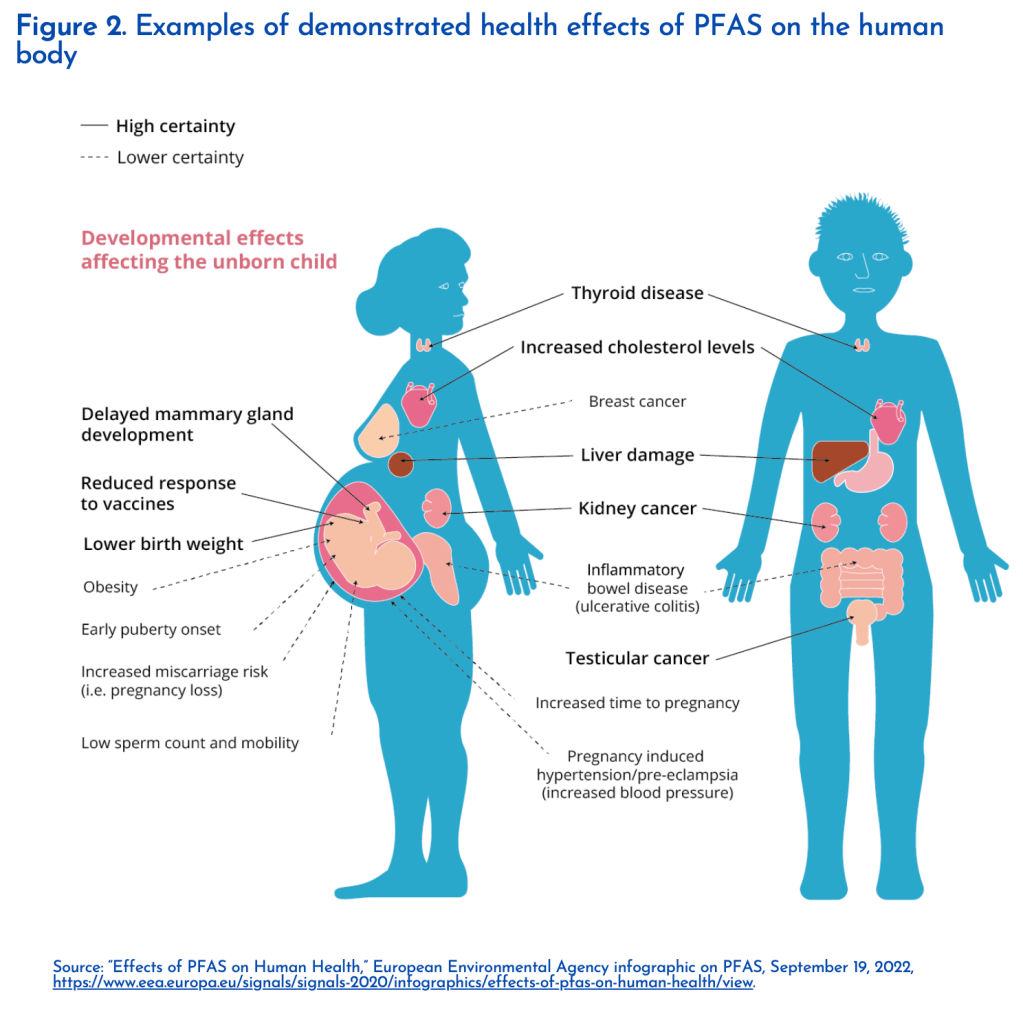
PFAS is shorthand for a class of more than 10,000 man-made chemicals (per-and polyfluoroalkyl substances) that are present in dozens of everyday household items, including non-stick cookware, rain-repellent clothing, stain resistant furniture, cosmetics, dental floss. Even in minuscule concentrations, the compounds may cause a host of harmful health effects, including thyroid disease, liver damage and cancers.
New York State enforces a limit of 10 parts per trillion for two of the chemicals, PFOS and PFOA, in public drinking water. The federal Environmental Protection Agency recently proposed enforceable tap water limits of 4 ppt for those same chemicals. When the limits are finalized, New York will be obliged to follow.
New York treats sewage sludge very differently.
Under the Hochul Administration’s proposed “interim guidelines,” no action would be required until PFOA or PFOS concentrations in sludge exceed 20,000 ppt. Further testing would be required for concentrations between 20,000 ppt and 50,000 ppt. Above 50,000 ppt, the source would be required to reduce the concentration below 20,000 ppt.
But even those relaxed limits are not enforced because the state does’t require sewage sludge to be tested for any PFAS chemicals.
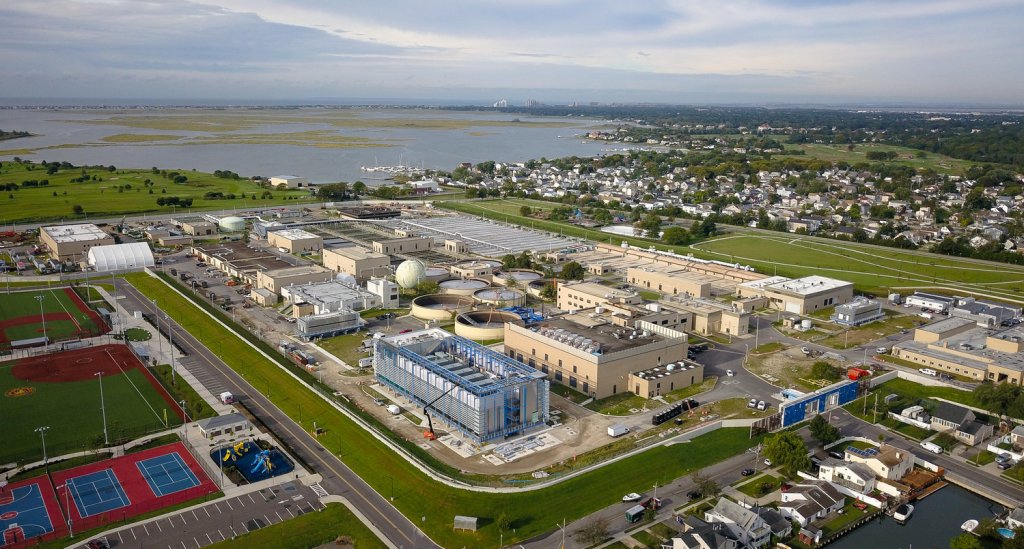
If data exists on tests for PFAS in sludge from the Bay Park sewage plant on Long Island, state officials have not released them to the public.
Volino told the Bath council Monday that Bay Park accepts inputs from several industrial operations. He said that boosts the chances of heavy PFAS contamination in the plant’s apparently untested sludge.
Before the Bath council voted on the moratorium, two Bath council members seemed to have reservations.
John Lysyczyn expressed concerns that Casella might sue to challenge the measure, forcing the town to pay to defend it. Tim Hargrave of Thurston said his town had pro-bono attorneys who have pledged to defend the moratorium language.

Mike Palermo noted that the moratorium wouldn’t halt sewage spreading on Bonny Hill fields. “What does it stop?” he asked. A major new source with unknown toxicity, several responded.
When Council Member Hal Bailey made a motion to approve the moratorium that he said he was “1,000 percent behind,” no one immediately moved to second it to allow for a vote.
But after the crowd insisted that the council act or face removal in the next election, the second came and was soon followed by the unanimous roll call vote.
Residents and officials from Thurston and Cameron were on hand to encourage the Bath council to enact the proposed moratorium. They handed out leaflets encouraging the public to attend the showing of the film “Toxic Farmland” at the Thurston Town Hall at 7 p.m. Friday, June 16.

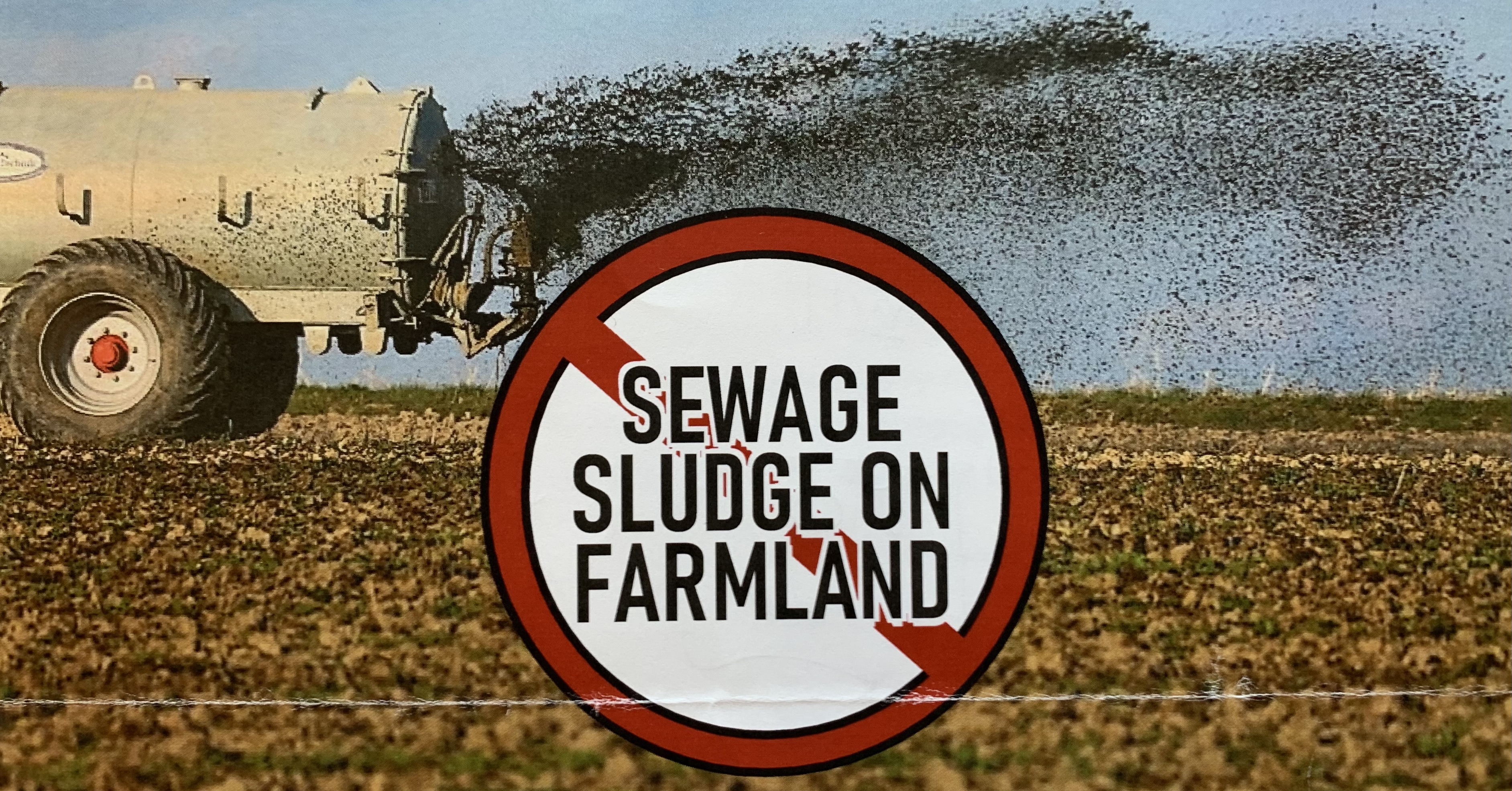
Kick ass story ! Small typo about 2/3’s down … Under th Hochol administration – should be a the .
LikeLike